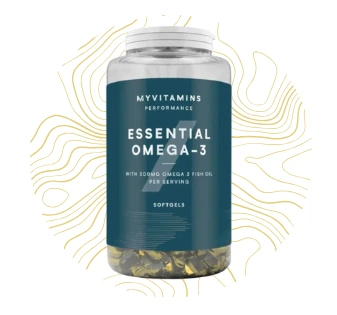Omega-3 fatty acids are among the most essential nutrients your body needs. Since they can't be produced internally, you must get them through food or supplements. These vital fats play a crucial role in maintaining overall health, from supporting heart function to enhancing brain development and even improving skin condition. But why exactly are they so important, and how can you ensure you're getting enough?

### What Are Omega-3 Fatty Acids?
Omega-3 fatty acids are essential fats that your body requires but cannot produce on its own. They are key for many bodily functions, including cardiovascular health, brain performance, and eye development. There are three main types:
- **EPA (Eicosapentaenoic Acid):** Found mainly in fish, EPA has strong anti-inflammatory properties and helps lower triglycerides, reducing the risk of heart disease.
- **DHA (Docosahexaenoic Acid):** Crucial for brain and eye health, DHA is abundant in the brain and retina and supports cognitive and visual functions.
- **ALA (Alpha-Linolenic Acid):** A plant-based omega-3 found in flaxseeds, chia seeds, and walnuts. The body can convert some ALA into EPA and DHA, but not efficiently.
### Why Do We Need Omega-3?
Omega-3s offer numerous health benefits:
- **Heart Health:** Help reduce triglycerides, lower blood pressure, and improve blood vessel function.
- **Brain Function:** DHA is essential for brain structure and cognitive abilities like memory and focus. It may also help with mood regulation.
- **Anti-Inflammatory Effects:** Reduce inflammation linked to chronic diseases such as arthritis and diabetes.
- **Eye Health:** DHA supports vision and protects against age-related macular degeneration.
- **Skin Health:** Improve hydration, elasticity, and reduce symptoms of eczema or acne.
- **Pregnancy Support:** Essential for fetal brain and eye development, and may reduce pregnancy complications.
### How to Get Enough Omega-3
Since your body can’t make these fats, you need to get them through diet or supplements.
#### 1. Diet Rich in Omega-3
Include the following foods in your daily meals:
- **Fatty Fish:** Salmon, mackerel, sardines, and trout are rich in EPA and DHA.
- **Plant Sources:** Flaxseeds, chia seeds, walnuts, and oils like flaxseed and hemp oil provide ALA.
- **Fortified Foods:** Some eggs, milk, and yogurts are enriched with omega-3s.
#### 2. Omega-3 Supplements
Even if you eat fish regularly, it's possible you still lack sufficient DHA and EPA. Fish oil supplements are a popular choice, offering a concentrated source of both. Algae-based supplements are also available for those who follow a plant-based diet.
If you don’t eat fish often, taking a supplement is an easy and effective way to ensure you’re meeting your omega-3 needs. Look for high-quality products that clearly list the amounts of EPA and DHA per serving.

### Final Thoughts
Omega-3 fatty acids are essential for long-term health. While they can be obtained through food, many people benefit from supplementation, especially if their diet lacks sufficient sources. Whether you choose to eat more fish, add plant-based sources, or take a supplement, ensuring adequate intake of these powerful fats is a smart step toward better well-being.
Frozen Fish,Frozen Bonito Tuna,Frozen Mackerel Fish,Fresh Frozen Mackerel Fish
ZHEJIANG RETRONX FOODSTUFF INDUSTRY CO.,LTD , https://www.retronxfoods.com